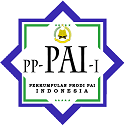Etika Profetik Santri; Resepsi Hadis Pada Tradisi Pendidikan Pesantren
Abstract
Keywords
Full Text:
113-128References
2016, T. K. (2016). Akhlake Kang! Kediri: Lirboyo Press.
Al-Bukhari, M. bin I. (2018). Al-Adab Al-Mufrad. Cairo: Dar El-Salam.
Al Asqalani, I. H. (n.d.). Fath Al Bari. Beirut: Dar Al Ma’rifah.
Al Baghdadi, A. B. A. K. (2011). Tarikh Baghdad. Beirut: Dar Al Kutub Al Ilmiyah.
Al Ied, I. D. (n.d.). Syarh Al Arba’in Al Nawawiyah. Makkah: Maktabah Al Faishaliyah.
Al Khathib, M. A. (2006). Ushul Al Hadits. Beirut: Dar Al Kutub Al Ilmiyah.
Al Qudhah, N. A. S. (2012). Fatwa Hukum Mencium Mushaf. Retrieved from Aliftaa.jo website: https://aliftaa.jo/Question.aspx?QuestionId=2645#.YZ8aLtBBzIV
Al Zarnuji. (1981). Ta’lim Al Muta’allim. Beirut: Al Maktab Al Islami.
Arifin, A. (2017). PEMBENTUKAN AKHLAQ SANTRI MELALUI KULTUR PESANTREN (Study Kasus Pondok Pesantren Salafiyah Pulutan Salatiga). IAIN Salatiga.
Dewan Redaksi. (1993). Ensiklopedi Islam. In Ensiklopedi Islam (First). Ichtiar Baru Van Houve.
Dewi, S. K. (2017). Fungsi Performatif dan Informatif Living Hadis dalam Perspektif Sosiologi Reflektif. Jurnal Living Hadis, 2(2), 179–207. https://doi.org/https://doi.org/10.14421/livinghadis.2017.1328
Dhofier, Z. (1984). Tradisi Pesantren. Jakarta: LP3ES.
Dzakiy, A. F. (2016). Hadis dan Resepsi Estetis Pesantren. Analisis, XVI(1).
Hasbillah, A. ’Ubaydi. (2021). Ilmu Living Quran-Hadis. Ciputat: Maktabah Darus-Sunnah.
Ibn Asakir. (2012). Tarikh Madinat Dimasyq. Beirut: Dar Al Kutub Al Ilmiyah.
Interview Alumni MHM. (2020).
Interview Mudir 3. (2020).
Interview Pengajar. (2020).
Irawan, A. (2018). Akar Sejarah Etika Pesantren Di Nusantara. Bandung: Mizan.
Kiai Kafabihi Mahrus Ijazahkan Sanad Kitab Kuning. (2013). Retrieved from nu.or.id website: https://nu.or.id/nasional/kiai-kafabihi-mahrus-ijazahkan-sanad-kitab-kuning-unQOa
Kusroni, K. (2018). MENGENAL TUNTAS SELUK-BELUK PERIWAYATAN HADIS. Riwayah: Jurnal Studi Hadis, 2(2).
Miles, M. B., & Huberman, A. M. (1992). Analisis Data Kualitatif. Bandung: Remaja Rosdakarya.
Miswar, M. (2022). Shalat Tahajud sebagai Penguatan Karakter Santri Pondok Pesantren. Jurnal Pendidikan Dan Konseling (JPDK), 4(6).
Nihwan, M. (2019). Tipologi Pesantren (Mengkaji Sistem Salaf dan Modern). Jurnal Pemikiran Dan Ilmu Keislaman, 2(1). https://doi.org/Jurnal Pemikiran dan Ilmu Keislaman
Novita, Khoriskiya, dkk. (1AD). UNGGAH-UNGGUH DALAM ETIKA JAWA SEBAGAI PEDOMAN INTERAKSI SOSIAL ANTARA SANTRI DENGAN KIAI PONDOK PESANTREN RAUDLATUT THALIBIN KABUPATEN REMBANG. Journal of Indonesian Social Studies Education, 1.
Qudsy, S. zuhri. (2016). LIVING HADIS: GENEALOGI, TEORI, DAN APLIKASI. Jurnal Living Hadis, 1(1).
Rafiq, A. (2014). The Reception of the Qur’an in Indonesia: A Case Study of the Place of the Qur’an in a Non-Arabic Speaking Community. Temple University.
Rahman, A. (2019). Dinamika Tradisi Pendidikan Salaf Pesantren Lirboyo Kediri di Tengah Arus Modernisasi. Jurnal Pendidikan Islam, 9(1).
Saifuddin, saifuddin. (2009). TRANSMISI HADIS DAN KONTRIBUSINYA DALAM PEMBENTUKAN JARINGAN KEILMUAN DALAM ISLAM. Jurnal Ilmiah Ilmu Ushuluddin, 8(2).
SEJARAH MADRASAH HIDAYATUL MUBTADIIN (MHM) DAN MA’HAD ALY LIRBOYO. (n.d.). Retrieved from Lirboyo.net website: https://lirboyo.net/madrasah-hidayatul-mubtadiien-lirboyo/
Setiawan, E. (2015). TINJAUAN PENDIDIKAN MENURUT PANDANGAN AL-GHAZALI. J-PAI: Jurnal Pendidikan Agama Islam, 2(1). https://doi.org/https://doi.org/10.18860/jpai.v2i1.3961
Sugiono. (2007). Memahami Penelitian Kualitatif. Bandung: Alphabeta.
Suryadilaga, M. A. (2009). MODEL-MODEL LIVING HADIS PONDOK PESANTREN KRAPYAK YOGYAKARTA. Al Qalam, 26, 367–383. https://doi.org/http://dx.doi.org/10.32678/alqalam.v26i3.1559
Tanzeh, A. (2004). Metode Penelitian Praktis. Jakarta: Bina Ilmu.
Tim Lirboyo Press. (2AD). Pesantren Lirboyo; Sejarah, Peristiwa, Fenomena dan Legenda. Kediri: Lirboyo Press.
Wibowo, H. (2020). Etika Santri kepada Kiai Menurut Kitab Ta’lim Muta’allim di PP. Kotagede Hidayatul Mubtadi-ien Yogyakarta. Panangkaran: Jurnal Penelitian Agama Dan Masyarakat, 4(2).
Zuhriy, M. S. (2011). Budaya Pesantren dan Pendidikan Karakter pada Pondok Pesantren Salaf. Walisongo: Jurnal Penelitian Sosial Keagamaan, 19(2). https://doi.org/DOI: 10.21580/ws.19.2.159
Zulhendra, Z. (2020). Muhammad Yasin al-Fadani. Diroyah : Jurnal Studi Ilmu Hadis, 4(2). Retrieved from http://journal.uinsgd.ac.id/index.php/Diroyah/article/view/7384DOI: https://doi.org/10.18860/jpai.v9i2.24128
Refbacks
- There are currently no refbacks.
Copyright (c) 2023 Hibbi Farihin, Fahim Khasani

This work is licensed under a Creative Commons Attribution-ShareAlike 4.0 International License.
...............................................................................................................................................................
Editorial Office:
Fakultas Ilmu Tarbiyah dan Keguruan
Universitas Islam Negeri Maulana Malik Ibrahim Malang
Jalan Gajayana 50 Malang, Jawa Timur, Indonesia 65144
Phone (0341) 552398, Faximile (0341) 552398
E-mail: jpai@uin-malang.ac.id
...............................................................................................................................................................

J-PAI: Jurnal Pendidikan Agama Islam is licensed under a CC BY-SA 4.0.
...............................................................................................................................................................
Indexed by:

















